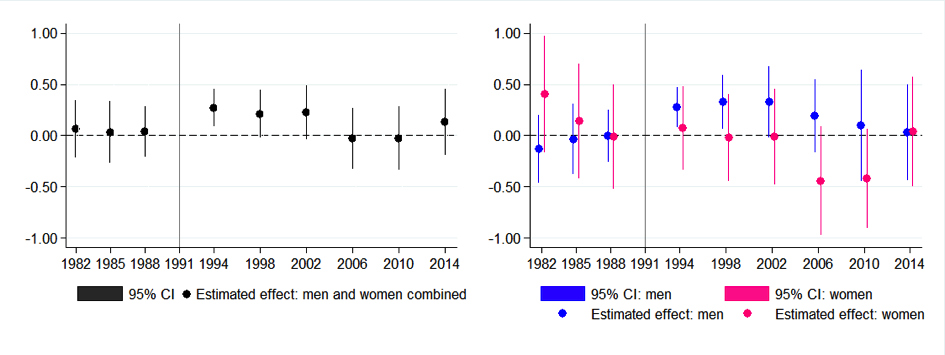Though we have come a long way in challenging overtly sexist behaviour, ‘low level’ or subtle sexism is still passed off as office banter or humour. Snéha Khilay argues that this holds women back in the workplace and needs to be discouraged.
Over the years negative, hostile behaviour towards women at work has been deemed as overt sexism and therefore unacceptable. However, the subtle and no less insidious sexism continues to fester in the background. There are comments and behaviours, whether made by men or women that devalue women. During a recent training session, I conducted an exercise titled ‘Acceptable Continuum’, providing statements to be categorised as either ‘acceptable’ or ‘unacceptable’. I noted with concern some participants becoming indignant that ‘I am going through a blond moment’* or referring to women as ‘girls’ was generally considered ‘unacceptable’. This indignation was verbalised by comments along the lines of ‘This is PC gone mad’, ‘We are walking on an eggshell culture’, ‘I can’t say anything now??’ etc.

I have worked with various organisations and noted that colleagues sometimes use certain but subtly negative language patterns, either out of habit or because it has become unconsciously so ingrained into office culture and banter that it becomes acceptable. There is a lack of awareness or a perception that if no harm is intended by these comments, no one should be offended. It is worth pointing out that these kinds of every day subtleties, with their ‘drip drip’ effect, are damaging and detrimental to how women are perceived and therefore treated.
In some organisations, colleagues have explained that when women state ‘I must have gone through a blond moment’, this seems to give some men the freedom and permission to make disparaging comments about women, albeit in jest. Some of these comments made by men were along the lines of ‘That was good work… for a woman’, ‘Can you be Mummy and organise lunch for the next Senior Management Team meeting?’ (made to a female member of the SMT), ‘I am surprised that you managed to do the project given your child care responsibilities….’, ‘here comes the handbag brigade’ – the list goes on.
It is apparent that sexist humour, which is really the denigration of women through humour, trivialises the unpleasant reality of sex discrimination behind a smokescreen of harmless banter and implies that when sexist language is presented as humour or in jest, it is to be viewed as acceptable and considered a bonding ritual between colleagues.
I recently attended a Board meeting of a public sector organisation which was also attended by two newly appointed members. I noted with wry interest that the Chair of the Board (a man) introduced the new female Board member with a detailed background about her family; she had three daughters, was a PTA member and attended a book club. In contrast the male Board member’s professional qualifications and accomplishments were highlighted. It was also telling that the Chair even introduced the female member with ‘I would like to welcome the beautiful Jackie^ to the Board’.
This type of subtle sexism leaves some observers feeling uncomfortable but not entirely sure about what. However, the real danger lies in it being possible to see the comment as normal and acceptable. Further, the Chair could even argue that he was complimenting Jackie. I later learned that Jackie had similar professional qualifications and accomplishments to those of her male counterpart; this was not mentioned at the meeting.
Various studies** reveal that sexist jokes and gender stereotype are some of the main factors in holding women back from thriving at work. The hard-to-detect comments can have an insidious effect, which over time is profound enough for women to start conforming to the stereotypes instead of focusing on their career advancement. Research findings show some common subtle incidents occurring on average 2-5 times a week. These include:
- Comments that women are not as good as men at certain activities (maths, sports, leadership);
- Comments that women are too easily offended or that they exaggerate problems;
- Seemingly benign comments about women, that they are naturally better at cooking, shopping or child care;
- Choosing women for stereotypical assignments or tasks;
- Making comments about women’s clothing.
The studies show that in response to the subtle sexist comments and attitudes, women have been known to perform poorly on cognitive tests. Further, they express feelings of incompetence and even greater dissatisfaction with their work-related performance.
Fundamentally, it is important for all of us to be aware that whilst we have made huge strides in moving away from explicitly negative and sexually inappropriate behaviour, subtle comments and remarks considered to be innocuous are damaging and help maintain the ripple-like effect of discrimination against women. As we celebrate International Women’s Day in March, we need to be more aware of subtle sexism in the workplace, the need to move away from stereotypes and to place a greater focus on treating people as individuals and not labelling them with the group that they represent.
The United Nations theme for International Women’s Day 2014 is ‘Equality for Women is Progress for All’.
* ‘I am going through a blond moment’ – phrase usually used by a woman to imply that she had forgotten to do something, is a scatterbrain or is being silly or stupid (from the stereotypical perception of blonde-haired women as unintelligent).
^Name changed
** Melbourne Business School, Australia, Pennsylvania State University USA and Philipps University Germany
 Snéha Khilay is a diversity and leadership consultant/trainer. Snéha carries out consultancy and training on Diversity and Inclusion, Managing Diversity and the Law, Cultural Competency, Dignity at Work and Conflict Resolution. Snéha has published articles on diversity and leadership in Management Today, Start Your Business, Simply Business, Professional Manager, Change Board, People and People Management. Visit Snéha’s website at www.bluetuliptraining.co.uk.
Snéha Khilay is a diversity and leadership consultant/trainer. Snéha carries out consultancy and training on Diversity and Inclusion, Managing Diversity and the Law, Cultural Competency, Dignity at Work and Conflict Resolution. Snéha has published articles on diversity and leadership in Management Today, Start Your Business, Simply Business, Professional Manager, Change Board, People and People Management. Visit Snéha’s website at www.bluetuliptraining.co.uk.






Hi this is interesting. I call out sexism and am made to feel like I’m in the wrong. For example someone I work with said “good girl” when I did a task. I said sorry but you make me feel like a child or a dog, I’m hardly a girl when I’m 44! This person was really funny to me but I felt I had to say as the more girl is said the more they say it and the more “the girls” can make the tea. Never “boys ” ever. I’m now labelled awkward.
I have read your article, Thanks for sharing this awesome post.. I appreciate you and hoping for some more informative posts..